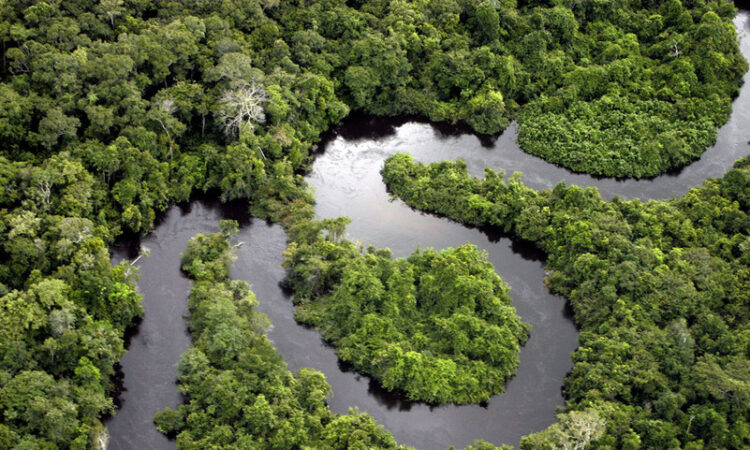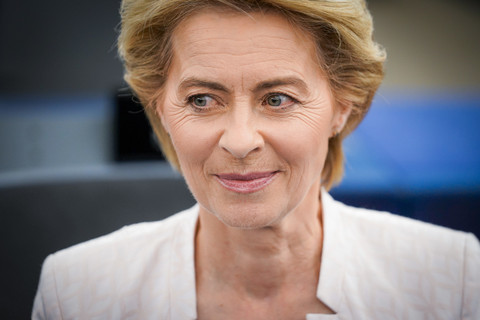
Finalising the EU-Mercosur agreement is a priority for the EU and the upcoming Spanish EU council presidency, ahead of a summit with Latin America and the Caribbean countries to be held in Brussels on 17 and 18 July.
But can negotiations over such a controversial old-fashioned trade deal be wrapped up in time for the meeting in mid-July? Hopes are high in Brussels — but talks could still fall apart.
“Concluding the EU Mercosur agreement will bring two regions together in a win-win partnership,” trade commissioner Valdis Dombrovskis told reporters on Wednesday (7 June) as he presented a renewed agenda to boost relationships with Latin America.
EU relationships with the region have been hindered by the lack of progress regarding the Mercosur agreement.
After almost 20 years of negotiations between the Mercosur countries (Brazil, Argentina, Uruguay and Paraguay) and the EU, the two regions reached a trade agreement in 2019.
However, long-standing concerns regarding sustainability, notably over deforestation in Brazil’s Amazon rainforest, have created obstacles to finalising the political agreement.
On top of that, Dombrovskis recognised that there are also concerns raised by Mercosur countries on the impact of the European Green Deal on their countries.
According to French Green MEP Yannick Jadot, the Green Deal is seen as “a form of neo-colonialism, whereby Europe would impose its agenda on the climate, forests, and people”.
Sustainability instrument
The EU presented an additional ‘sustainability instrument’ to Mercosur countries to make environmental protection conditional to finalise the trade deal.
But the Brazilian government previously slammed European rules as “extremely rigid,” AFP reported.
The EU is now awaiting Mercosur’s response to the instrument proposal, as negotiators from both sides are expected to meet at the end of June to try to reach an agreement.
EU commission president Ursula von der Leyen will travel next week to Brazil, Argentina, Mexico and Chile to present the new agenda for a renewed relationship between the EU and the region — with the Mercosur agreement expected to be high on the agenda.
Last week, Brazil’s leftist president Luiz Inacio Lula da Silva said that his government will not sign a deal without adjustments to public procurement rules, as the deal would allow EU and Mercosur companies to take part in tenders for public-sector purchases as ‘local’ companies.
But the EU commission warned against reopening negotiations.
“The commission’s general advice is not to reopen the agreement. It has been negotiated for a very long time,” Dombrovskis said. “If we now reopen, upset this economic balance, this may lead again to long negotiations with uncertain outcomes”.
Only in the past year, EU trade with Mexico and Mercosur was worth €240bn, which represents 65 percent of the total trade with the region, according to the commission.
‘Strategic imperative’
Any breakthroughs in the negotiations would be especially important in the context of the Spanish presidency of the EU Council which is due to start in July.
But even if some sort of political agreement is reached by mid-July, the ratification process of the Mercosur agreement would be long and difficult.
“It will be possible to get a political joint declaration ready for July. But the process of the ratification is still not clear. If unanimity is required then it might be difficult,” Mathilde Dupré head of the French Institute Veblen told EUobserver.
While Spain, with the support of Germany and Portugal, is calling for a swift conclusion of negotiations, countries like France have been vocally against ratification of the free trade agreement. National parliaments in Austria and the Netherlands have also raised climate concerns over the trade deal.
While Mercosur negotiations are still complex and difficult, the upcoming EU-CELAC [Community of Latin American and Caribbean States] summit is also seen as a geopolitical opportunity to revive relationships with the region after years of estrangement.
The last EU-CELAC summit took place in 2015.
“In the current geopolitical context, to reinforce the relationship the partnership between the EU and Latin America and the Caribbean is a strategic imperative,” said EU’s foreign policy chief, Josep Borrell, pointing out that this partnership has sometimes been “taken for granted” or even “neglected”.
Deforestation and pesticides concerns
Meanwhile, a study commissioned by the Greens in the European Parliament revealed on Wednesday that the Mercosur deal and increased meat exports could lead to the deforestation of an area of between 620,000 hectares to 1.35 million hectares.
“If further sugar production and ethanol production in Mercosur are encouraged, producers will raise more and more land, especially permanent grasslands and this, of course, (…) will also contribute to deforestation,” said Baptiste Buczinski, one of the authors of the study.
Additionally, researchers estimated that exports of cattle meat could increase from 23 to 56 percent, posing a competitive disadvantage to European breeders.
The deal will increase trade, but it will also have negative effects on healthcare and climate pollution, because of an increase in the use of pesticides and antibiotics, Buczinski warned.
Echoing similar concerns, Belgian Green MEP Saskia Bricmont noted that Brazil uses some 500 pesticides — of which 150 are forbidden in the EU — which increases the risk of importing products with these pesticide residues into the EU.
“The precautionary principle is not present in the agreement,” Bricmont warned, adding that products that are imported into the EU should follow EU laws.







